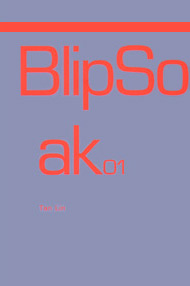 |
http://www.arras.net/slush_of_meaning/
The rules are simple, but the combinations of play, infinite.
You will be faced with a three quatrain poem based on Noam Chomsky's
famous example of a sentence that is grammatically correct but logically impossible -- i.e. nonsensical or "meaningless."
The trick is to pick the phrase that has the most Google hits. That is, which phrase, when typed into the Google search engine with double-quotes around it, would get the most hits.
If you guess the correct phrase, a browser window will open up that will show you the Google page with those hits. If you are incorrect, a window will open happily informing you of this matter.
Try for a perfect score -- that would be 5, as there are only 5 levels. (Btw, the levels never change -- if you want to go to the first level again and got it right in the past, you'll get it right again.)
Before starting, position this browser window so that it takes up the right side of the screen. Your score windows will accumulate at the left.
Colorless green ideas sleep furiously.
Sticky oleaginous memoirs murder affably.
Obsolete futuristic psalms spar quizzically.
Patternless checkered plantains fart sideways.
Virtuoso inept atheists excommunicate charismatically.
Plump boney sandals parse ahead.
Powerless manhandling whispers deafen preferentially.
Teutonic Chinese igloos incubate wisely.
Ineffable aggravating shrubs leer tactfully.
Autocratic indentured slaves unionize individually.
Arthritic nimble logarithms amplify quietly.
Colorless green ideas sleep furiously.
A silly thing I did for my Electronic Writing class last week. This needs to run on a pretty fast, non-Mac. It runs ok on g5s, etc., but not nearly at the frame rate that I created it in. The text is something I found online several years ago, really psychotic and weird, but you mostly can't read it. The music track is from L Voag.
http://www.arras.net/barney/barney_flash_ewriting.html
He's good, he's young.
The finger of the morning.
I hop by.
These short words
spring.
Alaska, or alas.
I'm listening.
Do they cook them, he asks.
I like them hot, but not this hot,
she replies.
Vast elevators
up and down College Hill.
The new issue's now online, with my review of Tan's book in it:
http://bostonreview.net/BR29.5/stefans.html

Many of us remember the trippy, innocent elation inspired by our earliest Google searches or our first encounters with an in-box full of e-mail on a Monday morning. These waves of digital detritus seemed to offer a buzz-sawed cross-section of the world, from telescoped views of all the naughty parts of the body to the relatively lofty concerns of mortgage refinancing and subsidies to the royalty of insolvent African states. Harnessing this torrent of found language for postmodern effect has been the modus operandi of not a few poets over the last decade or so, the starting gun having popped long before the dot-com beast ever slouched toward Babel.
Tan Lin seems to have gotten there before most of us. His first book, Lotion Bullwhip Giraffe (1996), glided along on riffs and rhythms that seemed as if Gerard Manley Hopkins’s “dapple-dawn-drawn Falcon” had gotten stuck in John Yau’s English-as-a-Stammered-Language machine. Take this passage from “Talc Bull Dogface”:
Lu Hsun chews geisha cup. Giesha spits cup. Clouds form on back like worms
in planetarium. How is tap-dancing nightingale distinguish
from cleaning rag? Sofa silkwork choo choos to camera. Bamboo ready
to baby poo nudie shade. Lu-lu jade dude pingpongs really
Rovely. The knees crumple like newspapers. Can’t push on
courtyard gardens in hardness. The purse snaps. God snap mouth.
The energy here isn’t ecstatic so much as scattershot. The poem makes a bid for total compression but ends up taking in as much as it severs; the aural effects are serial rather than counterpointed, the alliteration cloying in a way that Hopkins’s is not. But like Hopkins, Lin wants almost every syllable to pop in some way, and he pushes the line across the page quickly, impatiently, challenging the ear to assimilate its bounding prosody. In “Talc Bull Dogface,” the poet is treating his writerly output like a vast text dump, organizing his words according to some hidden, reptilian algorithm—in this case, an attention to lots of internal off-off-rhymes (“nightingale” / “distinguish”) and the “l”/”r” switches that mark the Chinaman in the clinamen—until they glow with radium-like intensity. You can make what you want of the “I” and whatever other fictions offer themselves up in the mélange of language; one poem starts, “to take heroin as a sleeping pill to follow a crack / hit with a snort of smack to bring one’s heartbeat back,” but this chemical moment probably has more to do with listening to Peter Laughner or reading French poetry than it does with any scouring of Lin’s own diary.
Read the rest at Boston Review